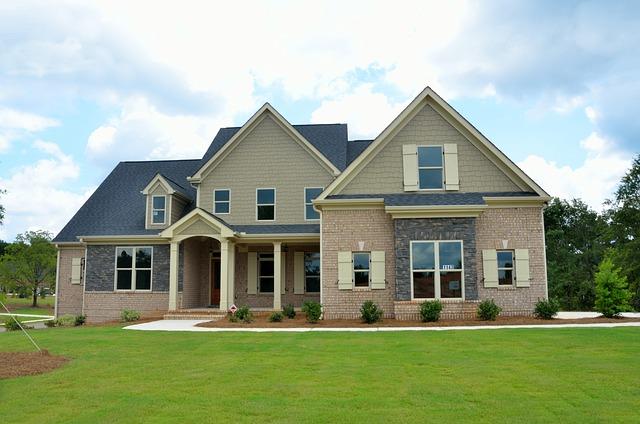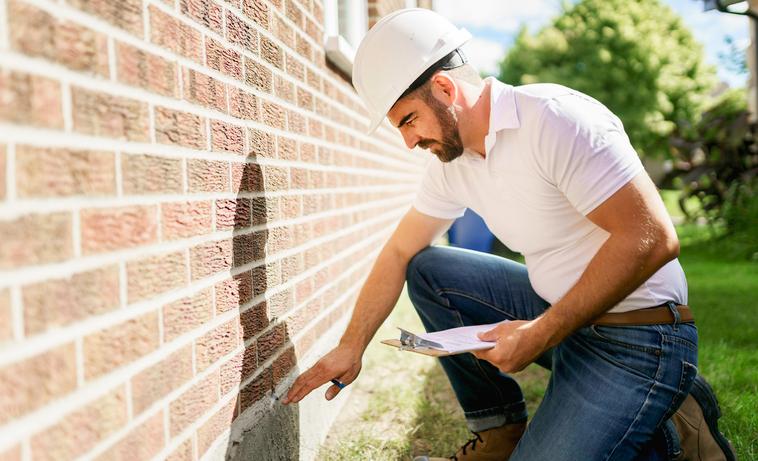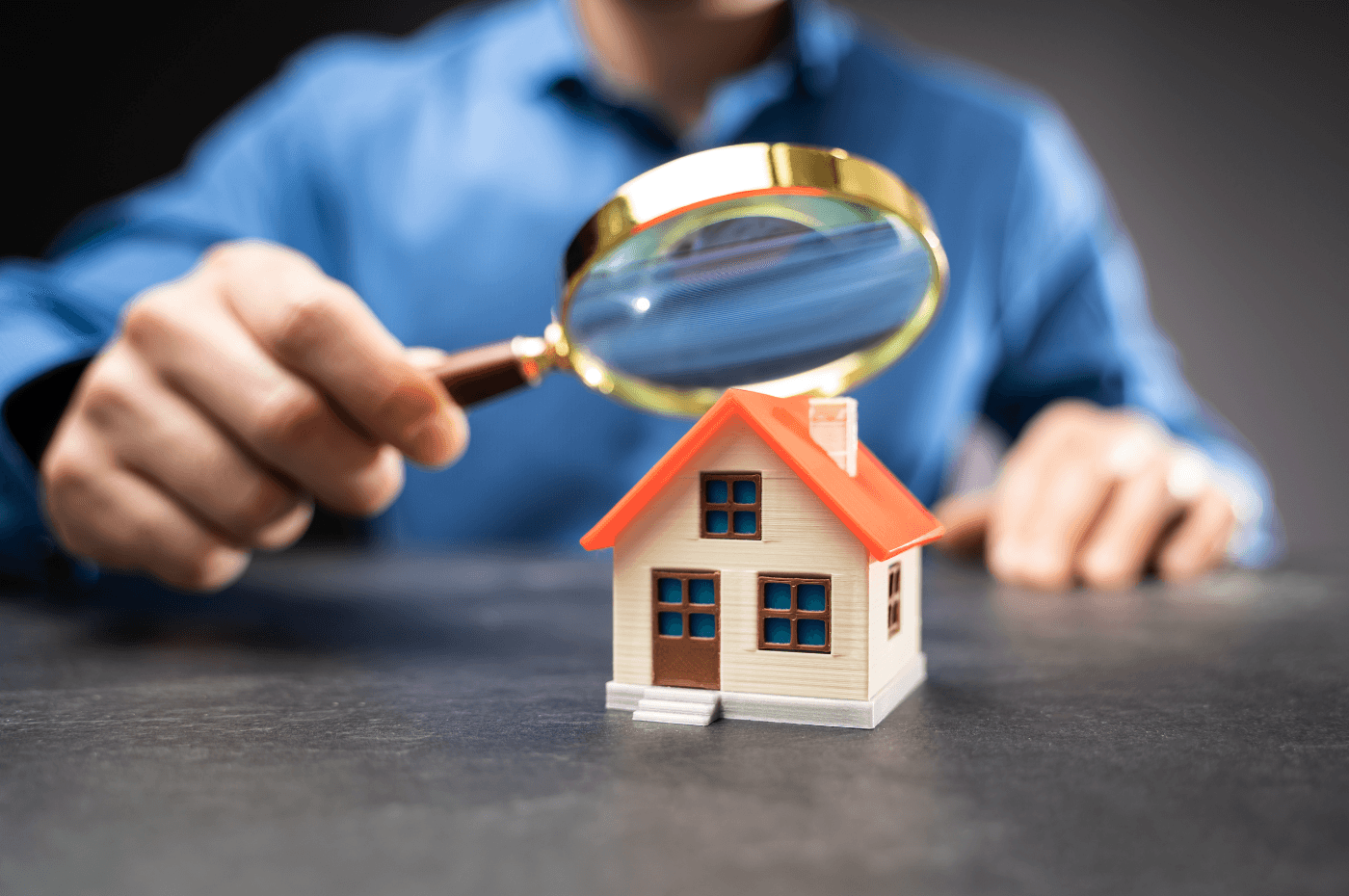Whether you are looking to buy, sell or already own a property, undergoing a building inspection can help you avoid unexpected and costly surprises. No one wants to be blindsided by home repair expenses that strain their budget.
In this article, we'll explore the significance of property inspections and guide you on selecting the right inspector to ensure peace of mind in your real estate journey.
What is the purpose of a building inspection?
The purpose of a building inspection is to provide a comprehensive understanding of the property’s physical condition. This examination is essential for protecting both the seller and the buyer in a real estate transaction.
Conducted by a certified inspector, the inspection involves a visual examination of the building’s visible components. Its primary goal is to identify significant defects that could potentially affect the property's functionality, market value, or safety for its occupants. It's important to note that technical assessments are not included in this initial inspection phase.

The 4 types of house inspection
There are 4 distinct types of house inspections, each fulfilling specific purpose:
-
Preventive inspection: Requested by the owner, this type aims to identify and prioritize necessary maintenance or improvements.
-
Presale inspection: Conducted to help sellers prepare by identifying required repairs before listing the property for sale.
-
Prepurchase inspection: Recommended to buyers to assess the property's condition and potential issues before finalizing the purchase.
-
Pre-delivery inspection: Ensures the quality of construction work and compliance with building standards before the property is handed over to the owner.
Being present during the inspection allows you to ask questions and gain a clear understanding of the property's condition, helping you make informed decisions and necessary follow-up actions.
Who can conduct a building inspection?
Building inspections are typically carried out by qualified professionals known as building inspectors, who have the expertise and experience to thoroughly assess a property's condition. However, depending on the scope and nature of the inspection, other professionals may also be involved:
- Architects
- Building engineers
- Building technologists
These professionals may be specifically required for tasks such as contingency fund studies mandated by regulations like Bill 16. Each brings specialized knowledge to ensure comprehensive evaluation and compliance with relevant standards and regulations.

What is the inspector's role?
The role of a home inspector remains consistent regardless of the type of inspection required. Their primary responsibility is to conduct a thorough assessment of various components of a property to ensure its condition is accurately documented. Here are the components that are typically assessed:
- Roof condition
- Structural integrity, including crawl spaces and attics
- Exterior and grounds of the property
- Interior spaces
- Electrical system
- Plumbing
- Heating and ventilation systems
- Air-conditioning and heat pump units
- Thermal and sound insulation
- Elements affecting personal safety
These inspections adhere to the standard practices established by the Association des inspecteurs en bâtiment du Québec (AIBQ). It's important to note that these standards apply specifically to buildings up to three storeys high and with a maximum area of 600 square metres.
The inspection report
A thorough inspection culminates in a detailed report, which is a crucial document for both buyers and sellers, particularly when the client cannot attend the inspection in person. Crafting a high-quality report requires careful attention and cannot be completed in the same day. Key elements typically included in a comprehensive inspection report are:
- Description of the building and all inspected elements.
- Clear and detailed information about findings, including any issues identified.
- Visual documentation with images.
- Signature of the inspector, validating the accuracy of the report.
In real estate transactions, a negative inspection report can notably disadvantage sellers by highlighting significant issues that may deter potential buyers or necessitate price adjustments.

How to make sure to choose the right building inspector?
Selecting the right building inspector is crucial to ensure a thorough and reliable assessment of your property. Given that the profession of building inspection isn't regulated by the Professional Code, it's important to take proactive steps to find a qualified and reputable inspector. Here are essential tips to guide your selection process:
- Confirm membership in a reputable professional association or relevant order in the inspection field.
- Perform a background check to verify the absence of any criminal history.
- Ask for proof of liability insurance that covers errors and omissions.
- Inquire about their usual turnaround times for responses and report delivery.
How much does a home inspection cost?
The cost of a home inspection can vary significantly, typically ranging from $500 to over $950 depending on the property's size and type.
It's important to avoid excessively low bids, especially for pre-purchase inspections, as they may signal compromised the quality of the inspection. Given the high financial stakes in real estate transactions, prioritizing thorough inspection over cost-cutting is advisable.
XpertSource.com provides a reliable platform where you can find qualified professionals in your area with verified credentials, ensuring competitive rates and quality service.
The limits of building inspection
While essential for transaction security, building inspections have inherent limitations that should be acknowledged. They primarily assess visible elements and may not fully protect against hidden defects.
Concerns like air quality or the presence of undesirable materials within walls and floors often require more in-depth analyses beyond standard inspections.
Are you looking for a qualified building inspector?
XpertSource.com can help you in your efforts to find a building inspector. By telling us about your project, we will refer you to top-rated experts, free of charge! Simply fill out the form (it only takes 2 minutes) and you will be put in contact with the right experts.

